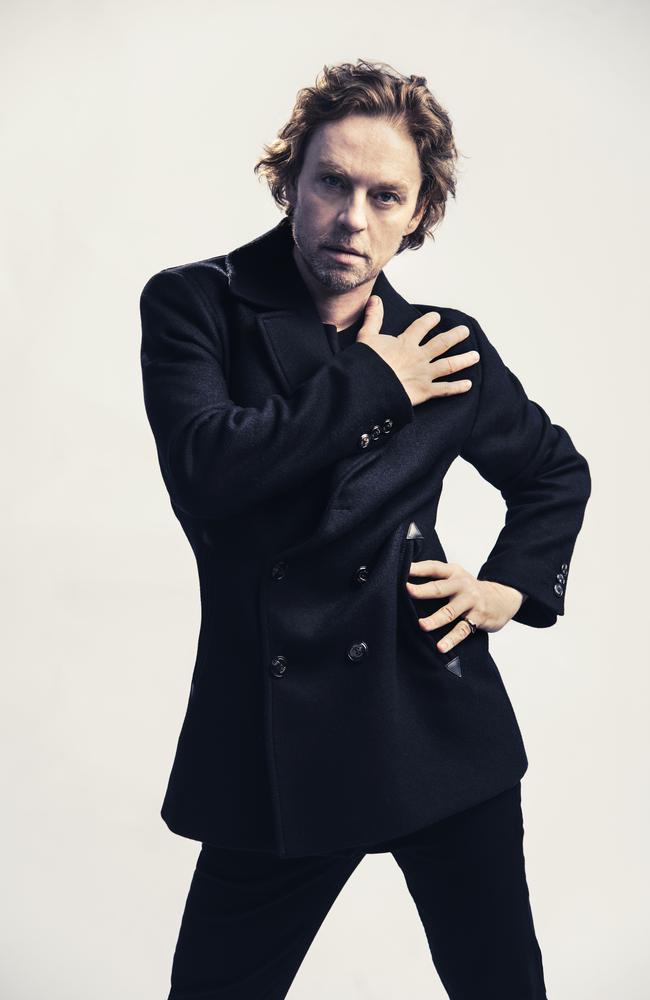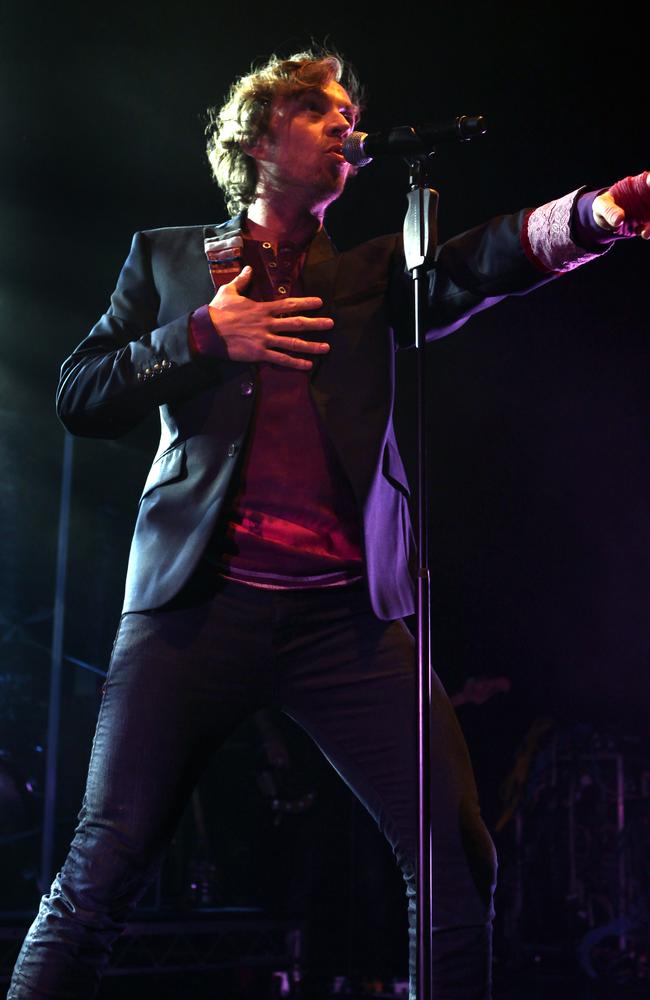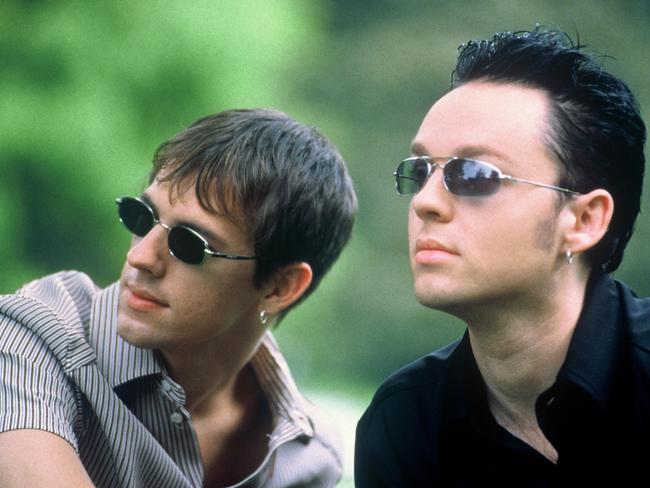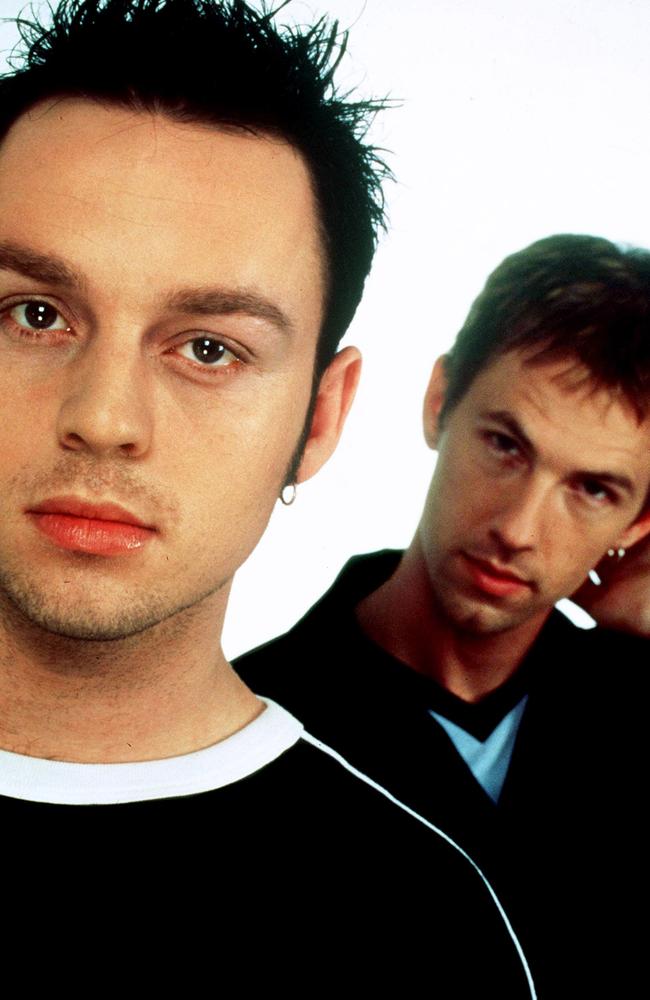‘Tired of being afraid to tell the truth’: Darren Hayes on Savage Garden’s split, why he ‘never left’ and his abusive childhood
Former Savage Garden singer Darren Hayes has addressed the band’s controversial split, as he unveils his new memoir.
Celebrity Life
Don't miss out on the headlines from Celebrity Life. Followed categories will be added to My News.
Darren Hayes would feel the wasps of anxiety stinging his insides whenever a fan would ask him who inspired the 1999 Savage Garden song ‘Two Beds and a Coffee Machine’.
The haunting ballad tells the story of how his mother, Judy, would bundle her children – Tracey, Peter and Darren – into the car and flee to a motel so they could escape the horrific abuse of their alcoholic father.
“It was just the most bizarre experience of strangers going ‘Oh my God, that song is so beautiful and so sad. Who’s it about?’” Hayes tells Stellar, revealing what he was secretly thinking in reply: “‘Oh man, you have no idea…’”
Hayes has since stopped keeping that secret, or any others. In his new memoir Unlovable, he is a pop star stripped bare.
“I’ve always been hiding this stuff. I had a brief moment of ‘Why the f*ck would I want the world to know this about me?’” he says from his Los Angeles home studio, as he wipes away tears.

“But I had got to this point where I was in so much pain, and I thought: if I just release this stuff, and just lay it out, then it’s done.”
The 52-year-old singer, songwriter and now author returned to therapy as he was writing the book last year.
The process unleashed memories of the decades of harrowing physical and emotional abuse his brain had kept locked away in what he calls “a Zip file that says ‘Do not open!’” to protect him.
He says the shame felt by victim-survivors of domestic violence also keeps the secret of their trauma: “That explains a lot of my depression and panic attacks, because there were moments in my life, like watching my mother being abducted, that I’d never even cried about.”
With the first millions of dollars he made after Savage Garden’s rise in the late 1990s, Hayes bought his mother a home so she could leave and divorce her husband.
For more from Stellar, listen to the latest episode of the podcast, Something To Talk About:

He also paid off the mortgage on the family house in Queensland. The singer hadn’t seen his father in more than a decade when he and his sister sought him out in 2017 to inform him of the suicide death of his 18-year-old grandson Ben. At their brother Peter’s request, they asked him not to attend the funeral.
The pair fled to a local police station after a fight erupted, Hayes standing his ground against the man who had struck him countless times during his childhood, once leaving a hand-shaped bruise that remained for more than a week.
“No-one in our family is in contact with him,” Hayes says now.
Unlovable also unpacks the relentless bullying and homophobia Hayes suffered throughout his school years, delivered by both students and teachers. It was going to see Michael Jackson perform at the Brisbane Entertainment Centre in 1987 when he was 15 that unlocked an escape route from his abusers; he decided at that moment that he wanted to be a pop star.
Savage Garden’s flame was slow to light.
Record labels passed on their polished songs until their mentor John Woodruff mortgaged his home and funded the project.
They would go on to release just two albums – their 1997 self-titled debut and the 1999 follow-up album Affirmation – but they were such monster hits, they sold more than 23 million copies worldwide.

In 1999, Hayes’ bandmate Daniel Jones – who was struggling with the pressures of the group’s fame and touring schedule – informed their inner circle that he was done with Savage Garden, shortly before the release of Affirmation.
In his book, Hayes writes that the unlikely pair, who shared little in common besides their songwriting chemistry, agreed to keep the split a secret until 2001, when the frontman was ready to go solo with his debut album Spin, released in early 2002.
He asked Jones to make it clear in a statement that it had been his call to dissolve Savage Garden, but when the break-up news leaked, Hayes was painted as the instigator of the band’s demise, and fans still blame him for it.
He says he regularly sees comments on Savage Garden social media pages calling him a “c***” for supposedly breaking up the duo.
“I don’t care what he thinks,” Hayes says of Jones. “I’m tired of being afraid to tell the truth. As I say in the book, maybe six or seven years [after the split] he started weaving the truth into his interviews and saying ‘When I left the band …’ And now that’s fact. But it’s still this weird, blurry urban myth … I get asked the question so much: would you ever get back together? Well, if you read the book, you’ll know why not.”
Besides, Hayes reasons, “When people [say] ‘Please get Savage Garden back together’, they’re really saying ‘I miss my childhood.’ And I get that. My answer is that I never left. I still sing those songs.”

The memoir also chronicles Hayes’ lifelong battle with depression and anxiety – about which, he says, he’s been “sending out SOS signals” in his lyrics throughout his recording career.
‘I Don’t Know You Anymore’, the final track on Affirmation, was inspired by him coming out to his wife, make-up artist Colby Taylor, who he met at university, married in 1994 and felt desperately sad about splitting from in 1998. (The pair remain good friends.)
“Even when I got married to a woman, I didn’t tell anyone,” Hayes says.
“That was a secret. To this day, there isn’t a picture of her [and me]; if you search for her, what comes up is one of my backing singers, Anna-Maria La Spina. We still laugh about that.”
In 2006, Hayes would go on to marry Richard Cullen in one of the UK’s first legal civil partnerships; the pair split last year.
Still, his book ends on a hopeful note. Hayes writes about an encounter on the streets of LA earlier this year, when he met a tall, broad-shouldered man – courtesy of his dog Huxley jumping all over him. They would go on to exchange numbers. Stellar asks Hayes if they’ve been on a date.
He laughs, and offers one of the rare cryptic replies he’s still willing to give: “The book says “I wonder what will happen next?’ And you can keep wondering … I’m happy.”
Unlovable by Darren Hayes (Penguin Australia, $36.99) is out on Tuesday. If you or someone you know needs support, visit 1800respect.org.au.
For more from Stellar and the podcast, Something To Talk About, click here. Read the full interview with Darren Hayes in the latest issue of Stellar, out via the Sunday Herald Sun (VIC), Sunday Telegraph (NSW), The Sunday Mail (QLD) and Sunday Mail (SA).
More Coverage
Originally published as ‘Tired of being afraid to tell the truth’: Darren Hayes on Savage Garden’s split, why he ‘never left’ and his abusive childhood





